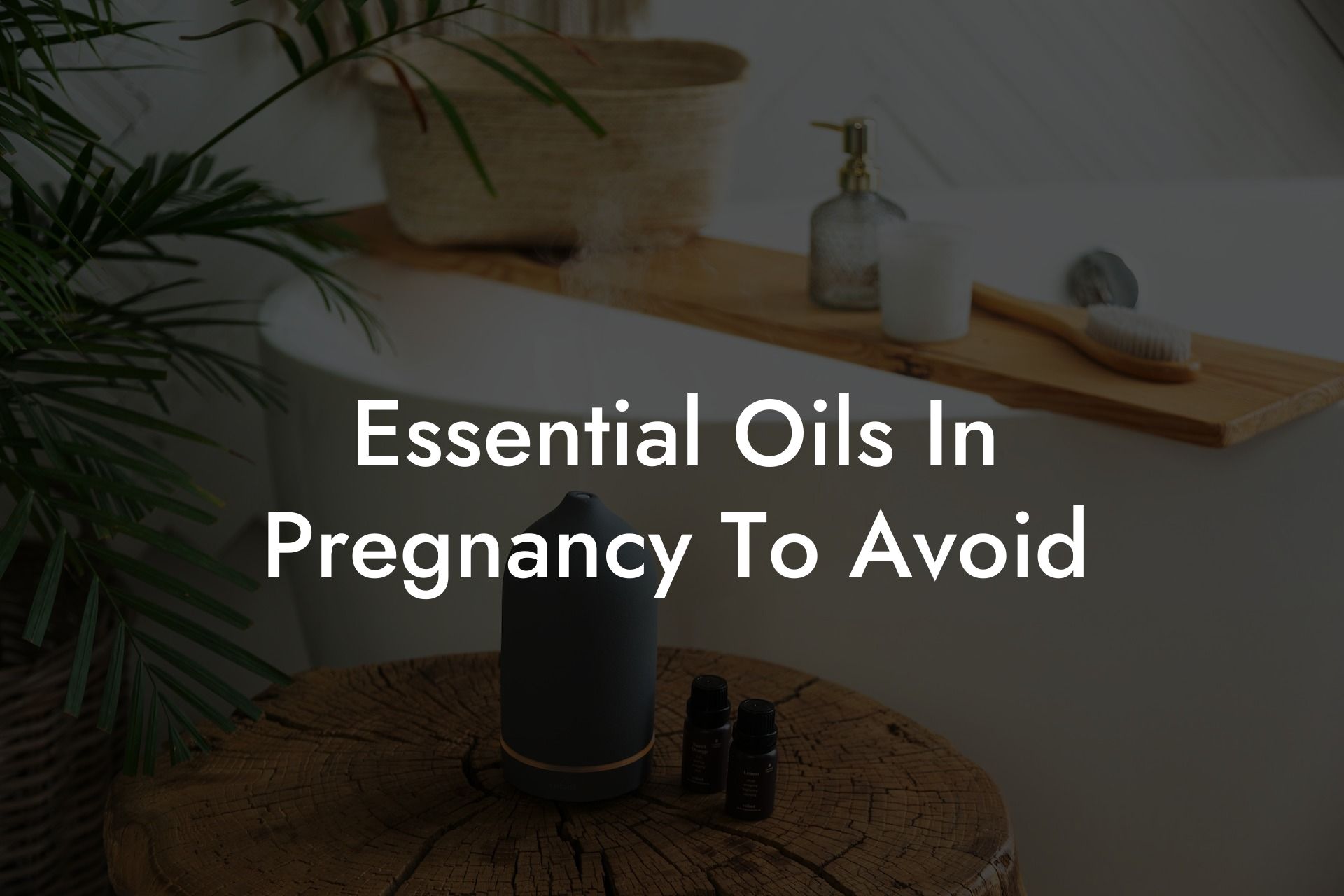Pregnancy is a beautiful journey, but it also comes with numerous dos and don’ts to ensure the safety and well-being of the mother-to-be and her unborn child. Among the constantly evolving guidelines, one area of concern is the use of essential oils during pregnancy. In this article, we will explore the essential oils that are best avoided or used with caution during pregnancy, to ensure a safe and healthy experience for both mother and child.
Table of Contents
- The Importance of Safety with Essential Oils in Pregnancy
- General Safety Tips
- Aniseed (Pimpinella anisum)
- Clary Sage (Salvia sclarea)
- Hyssop (Hyssopus officinalis)
- Jasmine (Jasminum grandiflorum)
- Myrrh (Commiphora myrrha)
- Rosemary (Rosemarinus officinalis)
- Tansy (Tanacetum vulgare)
- Essential Oils to Avoid During Pregnancy
The Importance of Safety with Essential Oils in Pregnancy
Essential oils are highly concentrated plant extracts and, while they have numerous benefits, there are some risks associated with their usage, especially when it comes to an already delicate period like pregnancy. As the body goes through numerous changes during this time, some essential oils can trigger certain side effects that may be harmful to pregnant women and their unborn children.
General Safety Tips
- Always consult with your healthcare provider before using any essential oils during pregnancy
- Use lower dilution rates (less than 1%) when blending your oils to minimize any potential risks
- Apply essential oils using appropriate methods, like diffusion, topical application or inhalation
- Keep in mind that certain oils are regarded as safe only during specific trimesters, while being cautious with new essential oils you have not used before pregnancy
Essential Oils to Avoid During Pregnancy
While it may be tempting to rely on the natural goodness of essential oils to help with pregnancy-related discomforts, it is important to know which oils are considered unsafe for use during this period. Here is a list of essential oils that you should avoid during pregnancy:
Aniseed (Pimpinella anisum)
This essential oil has estrogenic effects and can cause uterine contractions, which can lead to premature labor. Stay clear of this oil during pregnancy.
Clary Sage (Salvia sclarea)
Clary sage is known to induce contractions and should be completely avoided during pregnancy. It is also not recommended during breastfeeding as it can affect lactation.
Hyssop (Hyssopus officinalis)
Hyssop is rich in pinocamphone, a compound that can lead to uterine contractions and is harmful during pregnancy.
Jasmine (Jasminum grandiflorum)
Though beneficial in promoting relaxation and balancing hormones, jasmine essential oil is known to stimulate uterine contractions, making it unsafe for use during pregnancy.
Myrrh (Commiphora myrrha)
Myrrh is an emmenagogue, which stimulates blood flow in the uterus and can lead to contractions, miscarriage, or premature labor. Avoid using this essential oil during pregnancy.
Rosemary (Rosemarinus officinalis)
Rosemary oil contains camphor, which can cause uterine contractions, making it unsafe for use during pregnancy. It is also known to raise blood pressure, which can be risky for pregnant women.
Tansy (Tanacetum vulgare)
Tansy oil contains a compound called thujone, which can cause contractions, miscarriage, and raise blood pressure. It is best to avoid this oil completely during pregnancy.
Essential Oils In Pregnancy To Avoid Example:
Jane, a first-time expectant mother, experienced restless nights and decided to turn to essential oils for help. Knowing that some might be unsafe during her pregnancy, she consulted with her healthcare provider and found out that lavender oil (Lavandula angustifolia) could aid in promoting relaxation and restful sleep. She also learned about the appropriate dilution rates and application methods, such as diffusing the oil in her bedroom or adding a few drops to her evening bath.
As an expectant mother, your first priority should always be the health and wellbeing of both yourself and your baby. Obtaining accurate information about which essential oils to avoid during pregnancy is vital, and we hope this guide has provided you with the necessary knowledge to make informed decisions. Remember, always consult with your healthcare provider before using any essential oils during pregnancy. Feel free to share this article among your friends, explore other helpful guides at Oshu Oils, and don’t forget to discover our range of safe and expertly crafted essential oils and blends.





















